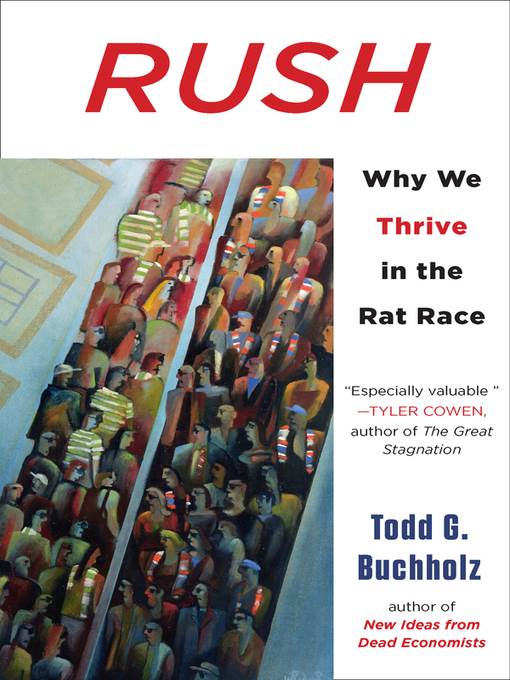
Rush
Why You Need and Love the Rat Race
کتاب های مرتبط
- اطلاعات
- نقد و بررسی
- دیدگاه کاربران
نقد و بررسی

January 31, 2011
Taking a vacation won't make you happy. Neither will attending a yoga retreat, argues Bucholz, a Harvard economics professor and former White House economic adviser. The quest for happiness has launched a huge industry touting the benefits of a return to a mythical, more relaxing "simpler" time. Bucholz calls its proponents "Edenists," and his book is a sharp rebuke to their message and popularity. Happiness is about activity, he says; stress drives us to perform our best, and competition is endemic to human nature. It leads to innovation and keeps us active, useful, and neurologically fit—he cites studies showing that people frequently show a drop in cognitive abilities after retirement. Though his high-spirited writing sometimes forgoes accuracy for hyperbole, he justifies his contempt for the "happiness industry," and advances his argument for setting ambitious goals for ourselves instead of lapsing into complacency or a "Zen-like sense of calm" with humor and conviction.

February 15, 2011
Former presidential economic advisor and hedge-fund director Buchholz (New Ideas from Dead CEOs: Lasting Lessons from the Corner Office, 2007, etc.) sings the praises of competition—in both our personal and professional lives—for leading a happier, healthier life.
The author marshals evidence from a number of sources—neuroscience, psychological investigations, evolutionary theory, common sense and his own experience—to suggest that the great avenue to happiness is being in the hunt, that competition, in all its risk and intensity, is what gets the vital juices flowing. In a zesty voice, and with the occasional wiseacre comment, he presents intelligent remarks on the value of hard work. He draws important distinctions between good and bad competition ("There is a big difference between meeting healthy, productive challenges and plundering your coworker's ego") and between good and bad anxiety (the former being nervous energy, the latter a lifestyle without enough choices). Buchholz appreciates that the competitive marketplace is often not fair, but then neither is life—it's a struggle in which you have to actively engage, and that engagement brings happiness in its wake. Not all readers will agree with the author that "[w]e prefer to earn more than our colleagues at work...because that is a signal that we have earned our keep," or when he asks, "[w]hat's the point of hailing a people as happiest if their purported happiness does not inspire them to reproduce?" Although the humor is fun and a little corny for the most part, it can also be snarky: "The contented do not grow smarter, they grow moss." But the author saves his humanist best for last in a tribute to personal goals, fulfilling forms of competition with yourself that don't require you to root for the defeat of others.
Buchholz projects a communicable affection for the loud business of life, of risk-taking and devoted engagement in the pursuit of happiness.
(COPYRIGHT (2011) KIRKUS REVIEWS/NIELSEN BUSINESS MEDIA, INC. ALL RIGHTS RESERVED.)

























دیدگاه کاربران